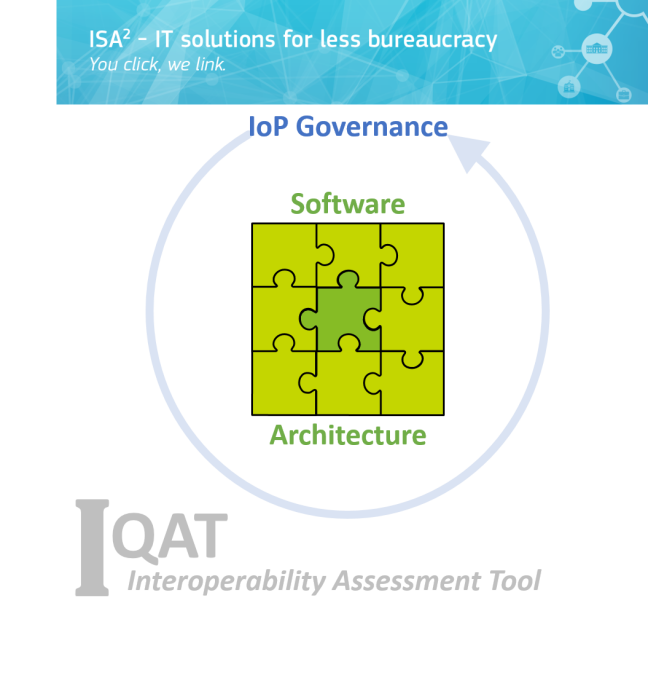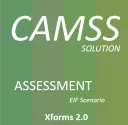_3.png?itok=o1TNmExJ)
|
The Interoperability Quick Assessment Toolkit (IQAT©) has been developed in the context of Action 2016.36 Assessment of trans-European systems supporting EU policies of the Interoperability solutions and common frameworks for European public administrations, businesses and citizens (ISA2 programme). |
The objective of the IQAT© is to allows public service owners to evaluate the structural interoperability maturity level of their digital public service. It uses the Interoperability Quick Assessment Tool (IQAT) model for software solutions, which provides public administrations insight into two key aspects of the structural interoperability of their digital public service:
- IOP Governance: this area assesses the overall governance of interoperability. It assesses factors relevant to actions that took place before the actual development of the system. It also includes factors relevant to the existence of policies and processes to safeguard interoperability.
- Software Architecture: this area assesses the maturity of the internal software architecture of a solution as well as the coordination of interactions with other software solutions, based on the EIRA model.

The toolkit is fully compliant with all European Interoperability Framework (EIF) recommendations for the development and improvement of public services.
The IQAT© comprises the following release components:
- Interoperability Quick Assessment Tool in EU Survey – Compact and highly user-friendly online self-assessment survey used to calculate the structural interoperability maturity level of their digital public service,
- Release notes – Short document that contains the description of the main updates from version v1.2.0 to v2.0.0.
The expected benefits of the IQAT© are listed as follows:
- It spots areas for improving the interoperability in a given solution;
- It supports portfolio management decisions:
- by suggesting solutions that could be published in the European Interoperability Cartography (EIC);
- by clustering solutions with regard to interoperability maturity;
- by identifying solutions that should be improved in term of interoperability.
- It is applicable to any software solution supporting public services (not only for TES);
- It saves time and resources in interoperability peer-to-peer tests by acting as a gateway to it. If the result of the Interoperability quick assessment is below the suggested threshold then it is recommended not to invest further efforts in a full interoperability peer-to-peer test;
- It supports end users of the EIC in verifying the overall interoperability score of any published solution.
Based on the automatically computed Interoperability Assessment Score, the toolkit provides a four stage interoperability maturity level model for each of the aforementioned two interoperability areas. It indicates the potential interoperability maturity of a specific solution by providing a reference rate (from 0% to 100%), with clear recommendation on how to improve each area.
Building on this maturity level of the specific digital public service, the Solution Owner can activate technical improvements aimed at increasing the potential interoperability of the digital public service.
Start your IQAT assessment!
The current version of IQAT (IQAT v2.0.0) is available at the EU survey portal: https://ec.europa.eu/eusurvey/runner/IQAT_InteroberabilityQuickAssessmentTool




